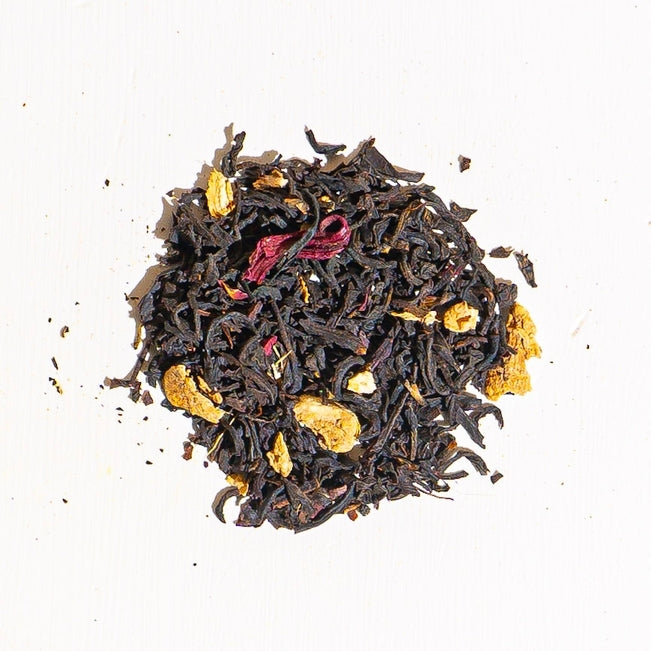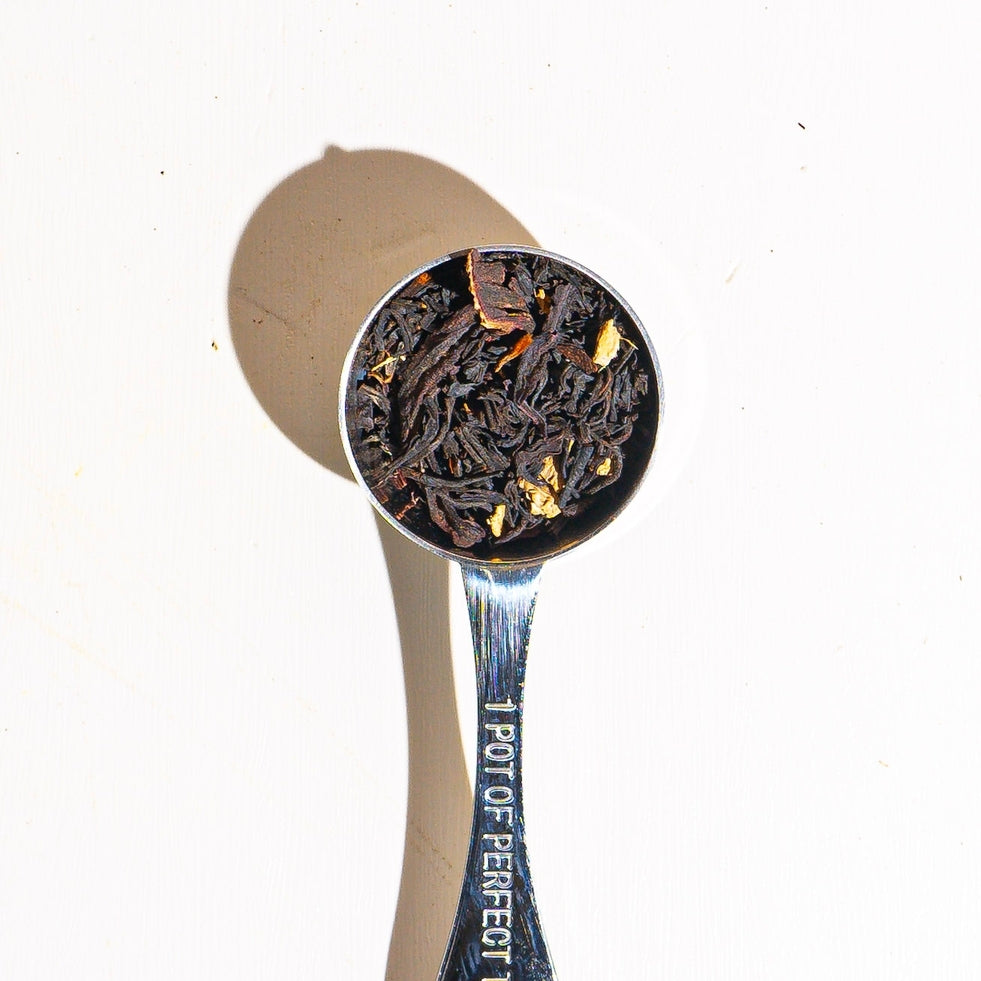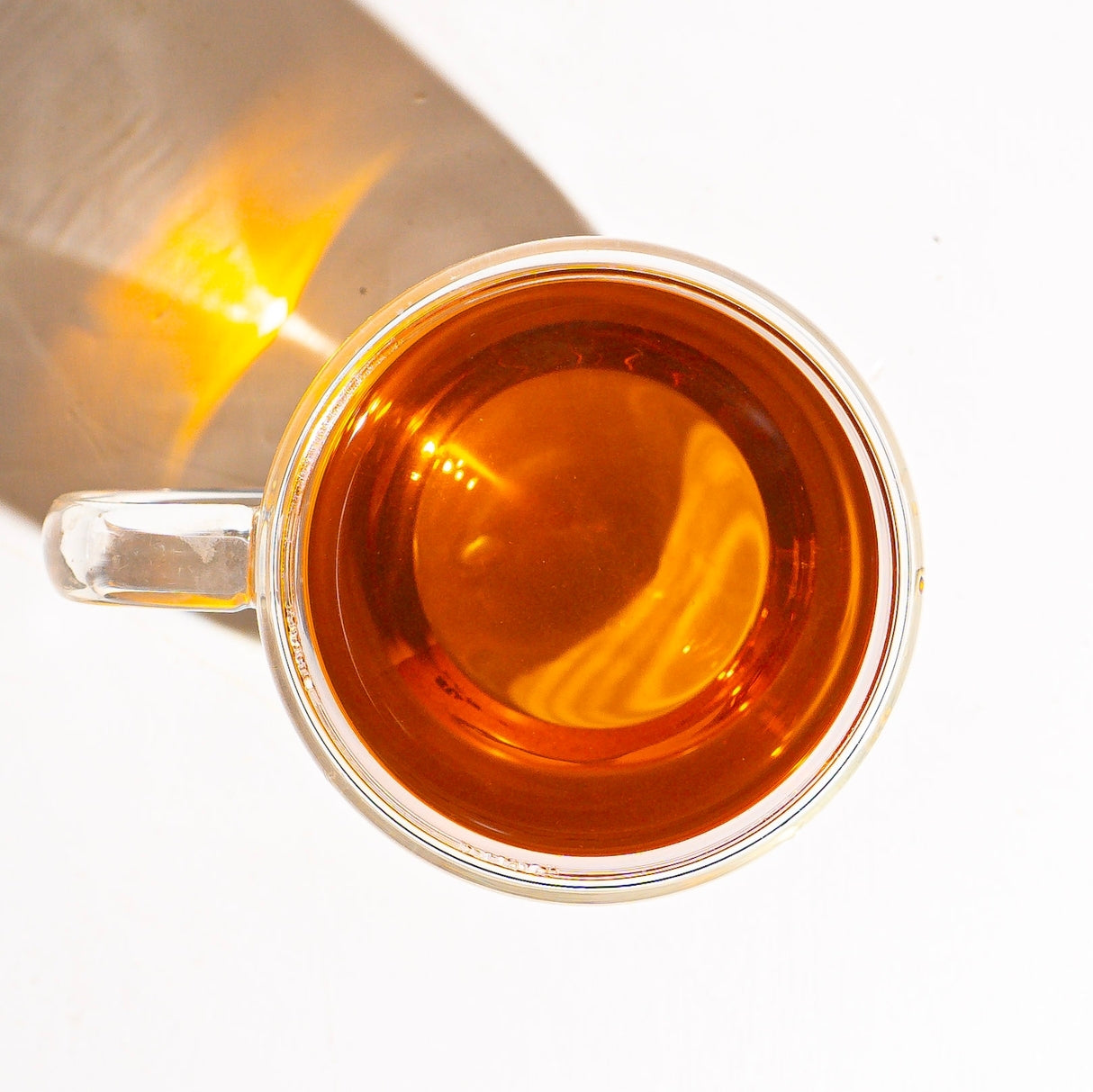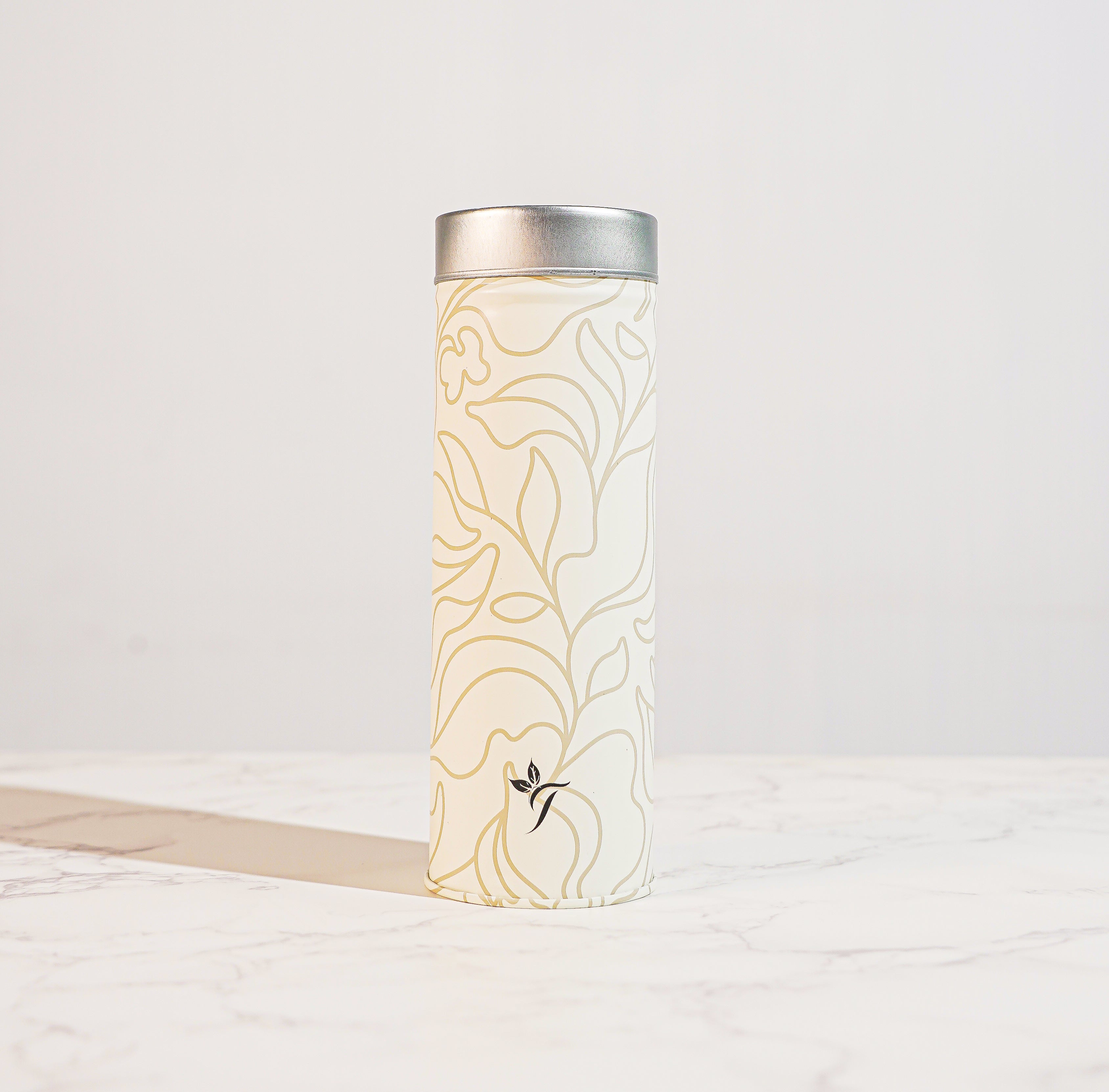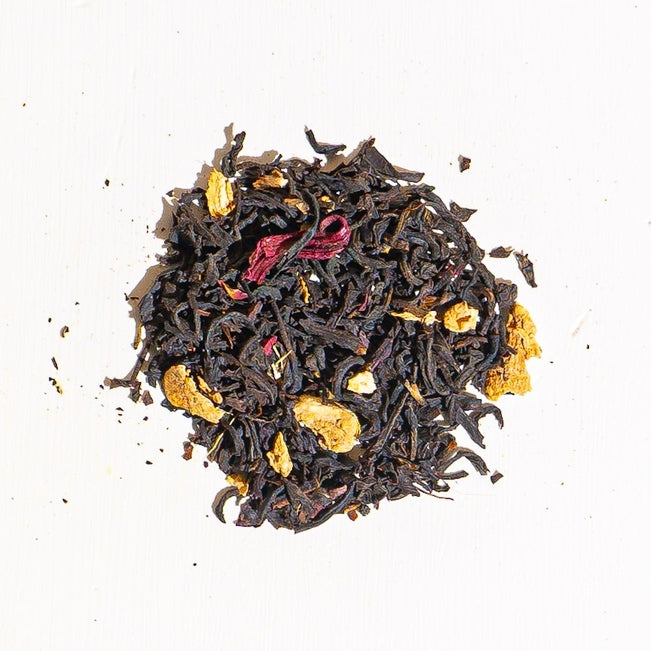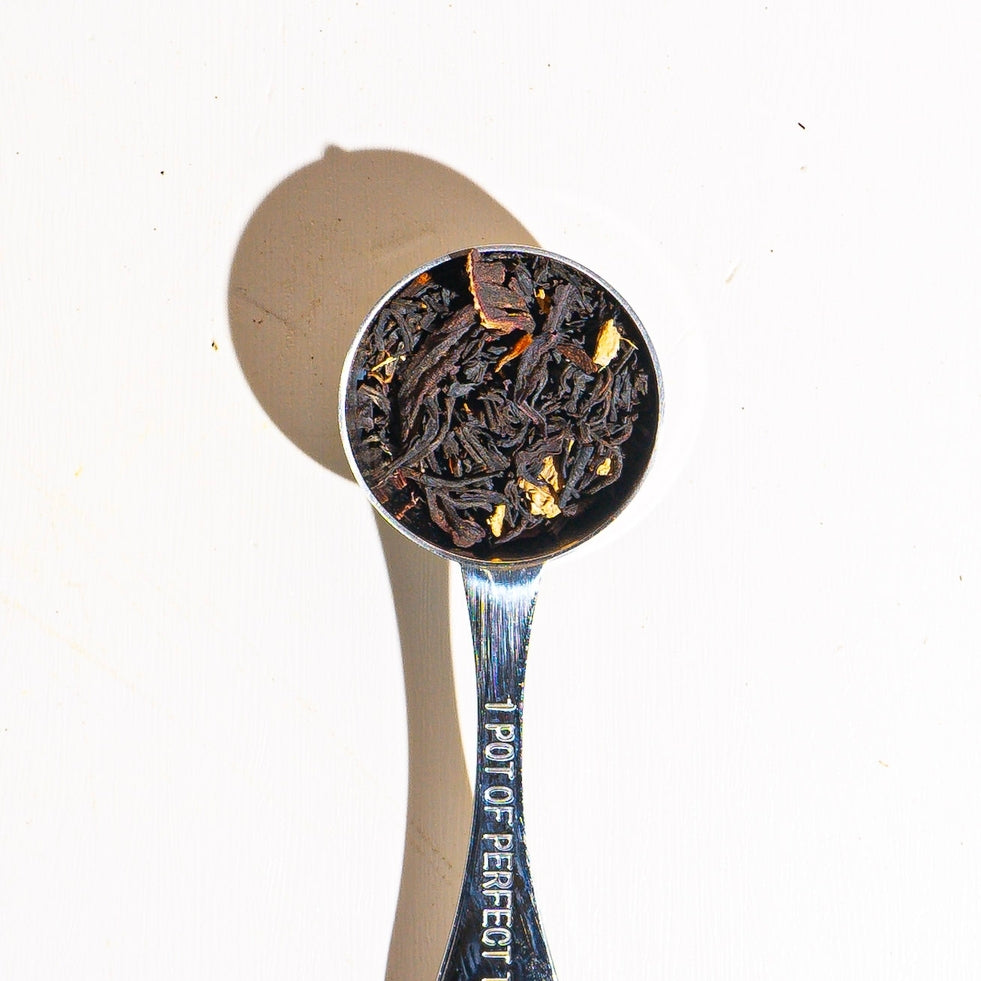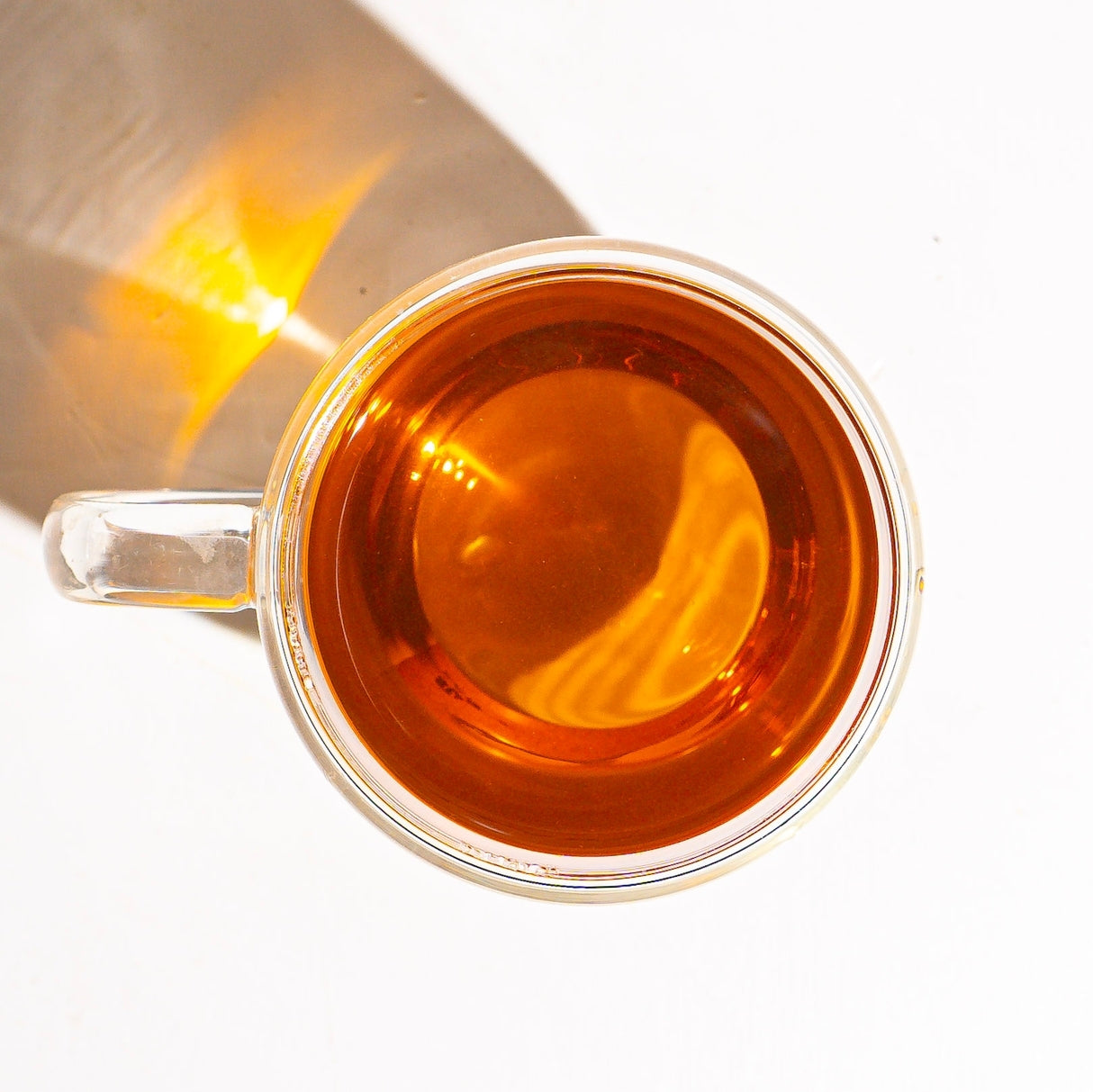1
/
of
3
Hibiscus-Ginger Assam
A great Assam with a classic deep amber liquor.
An Assam orthodox leaf tea that retains the classic deep amber liquor and rich flavor of a Assam tea with the strong tartness of hibiscus pieces and zing of ginger.
A great tea fun way to enjoy an Assam.
Ingredients: Assam Black Tea, Hibiscus, Ginger Root
This tea supports the Ethical Tea Partnership
All Camellia sinensis in our blends contributes to a fairer, more sustainable tea industry.
CAFFEINE CONTENT | HIGH
Cup per oz
10-12 cups per 1 oz
Couldn't load pickup availability
 1-2
1-2
Tea
Spoons


205-212°F
In 475 ml (8oz)

 4-6 mins
4-6 mins
 1-2
1-2
Teaspoons

 205-212°F
In 475 ml (8oz)
205-212°F
In 475 ml (8oz)

 4-6 mins
4-6 mins
